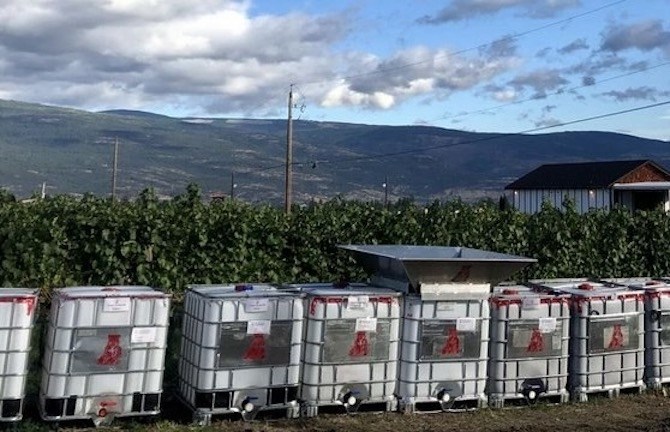Okanagan company gets federal funding to develop winery clean tech

An Okanagan-based company is getting federal funding to find new ways to turn wine waste products into new, value-added food sources.
Winecrush announced in a media release this week it has received new funding from Agriculture and Agri Food Canada for research and development toward the company’s new “Marlee” project, a bio-mechanical process it is developing to transform food grade wine derivatives into high performance flavour enhancement ingredients.
Winecrush is taking what was previously waste products normally discarded following the wine making process, and turning that waste into natural food additives.
The company has a new patent pending bio mechanical process to cost effectively upcycle wine making derivatives into a variety of health and food products.
The funding comes from the federal agricultural ministries’ Agriculture and Clean Technology program, which invests in research, development, and adoption of clean technologies leading to the promotion of agricultural based bioproducts.
"We are honoured to receive support from Agriculture and Agri-Food Canada. Their ACT program was a perfect fit for our stage of development,” Winecrush president Bill Broddy says in the release. “The Marlee Project is designed to give wineries an effective alternative for the derivatives from the winemaking process, rather than let these food grade materials go to waste.”
Winecrush worked with 10 Okanagan wineries to collect their pomace (grape skins and seeds left after pressing) and lees (sediment).
The pilot program salvaged 150 tonnes of wine waste from the landfill, and avoided the release of 6,500 kilograms of methane.
Stag’s Hollow Winery winemaker Kiera LeFranc says in the release Winecrush’s vision of sustainability and environmental preservation, “seems to be in line with what we are trying to achieve here at Stag’s Hollow WInery.”
The success of the pilot program has Winecrush already planning for the 2021 harvest.
Neither Agriculture Canada nor Winecrush were willing to disclose how much the company received.
To contact a reporter for this story, email Steve Arstad or call 250-488-3065 or email the editor. You can also submit photos, videos or news tips to tips@infonews.ca and be entered to win a monthly prize draw.
We welcome your comments and opinions on our stories but play nice. We won't censor or delete comments unless they contain off-topic statements or links, unnecessary vulgarity, false facts, spam or obviously fake profiles. If you have any concerns about what you see in comments, email the editor in the link above.


